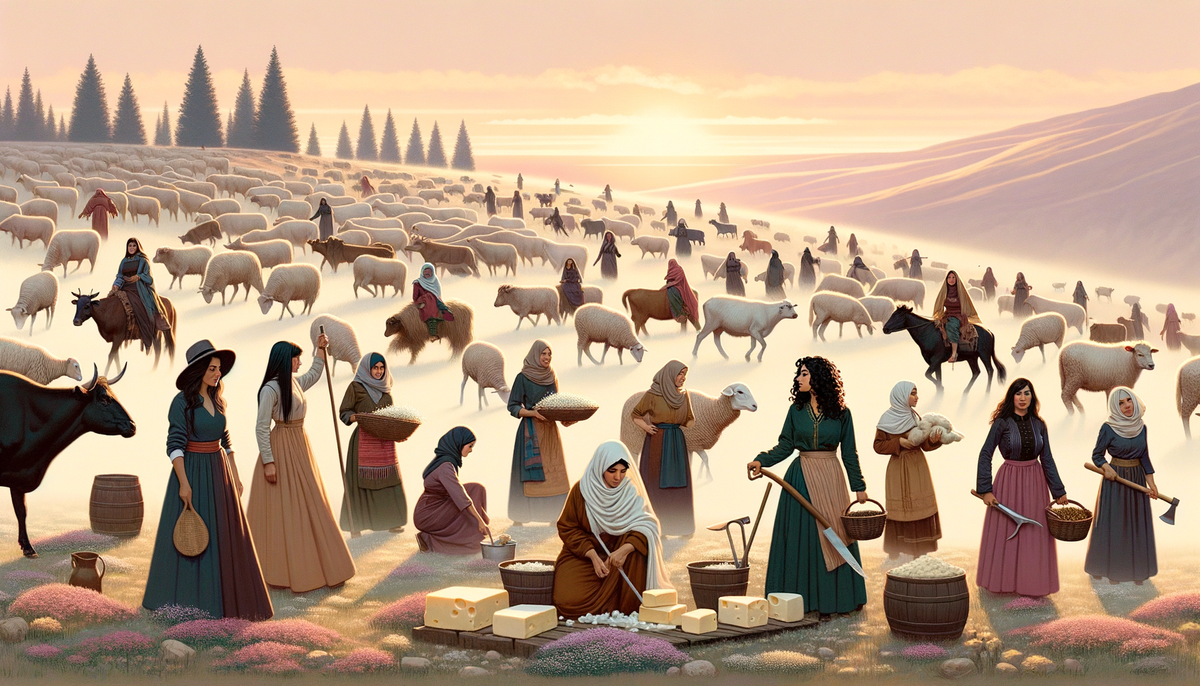Feminism and the Role of Women in Modern Pastoralist Societies
Discover the role of women in pastoralist societies, the challenges they face, and the steps we can take towards gender equality and women's empowerment.

Understanding Pastoralist Societies
Pastoralist societies have existed for centuries, relying on the herding of animals such as sheep, goats, and cattle for their way of life. These communities are incredibly resourceful and resilient, often adapting to harsh environments and challenging conditions. But what about the women in these societies? How do they fare in a world that is often patriarchal and resistant to change?
Women’s Responsibilities in Pastoralist Societies
Women in pastoralist communities often bear a significant load of daily responsibilities. They are involved in the milking, feeding, and healthcare of the animals. They also manage the household chores, raise children, and often participate in the trade of animal products. Despite their crucial role, these contributions are frequently undervalued, and women’s voices remain largely unheard in decision-making processes.
Challenges and Barriers
One of the biggest challenges faced by women in pastoralist societies is the lack of access to education. Cultural norms and limited resources often prioritize the education of boys over girls. This creates a cycle of disempowerment where women are left without the skills and knowledge needed to advocate for themselves and their communities.
Another significant barrier is restricted access to healthcare. Women in these communities may struggle to obtain necessary medical care, particularly during pregnancy and childbirth. This lack of healthcare can have devastating effects not just on the women themselves, but also on their families and communities.
Reshaping Gender Norms Through Education
Education is a powerful tool for change. By providing women and girls with access to quality education, we can empower them to challenge traditional gender norms and take on leadership roles within their communities. There are inspiring examples of educational programs targeting pastoralist societies that have had significant impacts. For instance, this resource discusses various aspects of pastoralist life, offering insights that can help drive change.
Economic Empowerment Through Skill Development
Another vital step towards women’s empowerment in pastoralist societies is economic independence. Programs that teach women new skills, such as sustainable farming practices or handicrafts, enable them to contribute financially to their households. This not only improves their economic standing but also helps to elevate their status within the community.
Advocacy and Policy Change
For lasting change, it is essential to advocate for policies that support women’s rights in pastoralist societies. This might include measures to improve access to education and healthcare, protect women from violence, and ensure their participation in community decision-making processes. Organizations working on the ground can play a pivotal role in highlighting these issues and driving policy changes.
Conclusion
Women in pastoralist societies are strong, resilient, and capable. By addressing the barriers they face and providing them with the tools they need to succeed, we can help create a more equitable world. Feminism in pastoralist societies isn’t just about advocating for women’s rights; it’s about recognizing their indispensable roles and ensuring they have the opportunity to thrive.



